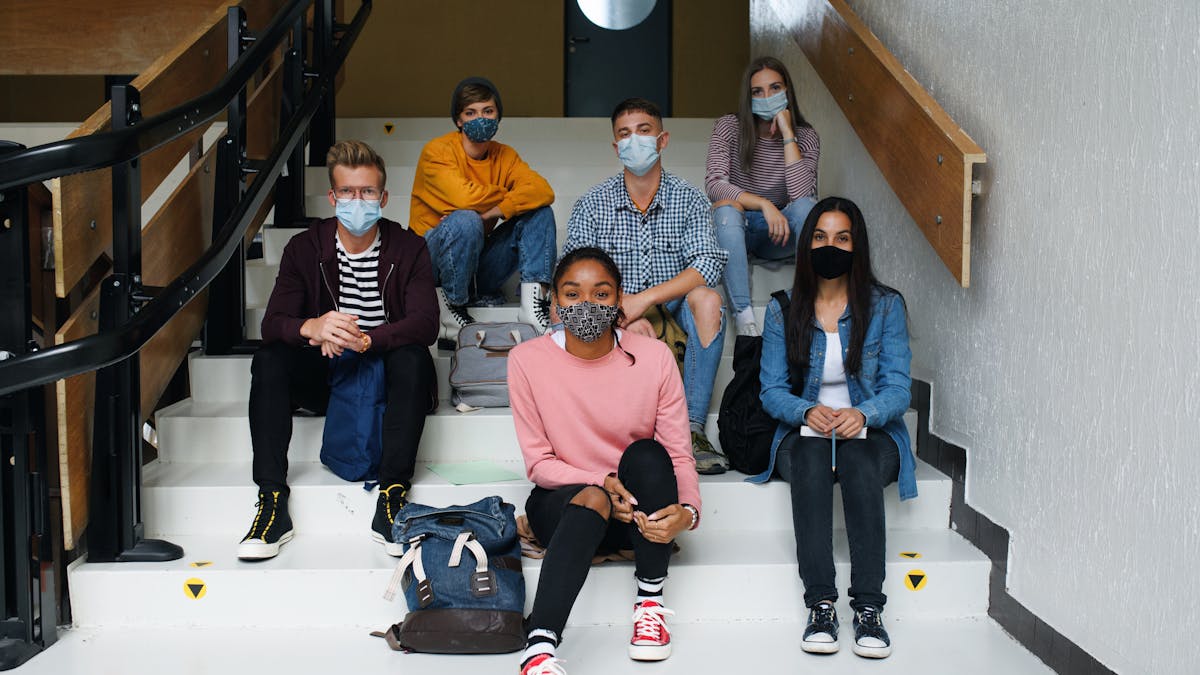

The well-being of youth facing pandemic-related stressors was directly tied to the quality of relationships with the major adults in their lives—both at home and at school, according to a new report released today by the Society for Research in Child Development (SRCD). The report, COVID-19 and Resilience in Schools: Implications for Practice and Policy, outlines findings from the first large-scale study of over 14,000 middle and high school students from across the United States during the first three months of the COVID-19 pandemic.
The study focused on the effects of the COVID-19 pandemic on adolescent mental health, in particular, on symptoms of depression and anxiety. The strongest factor in predicting depression for these youths was parent supportiveness. Parent support was measured by the degree to which students felt their parents helped them to manage their feelings and by whether parents were an additional source of stress for them.
Other significant protective factors against depression included effectiveness of online learning and whether students felt their concerns – for example, about high workload, or inflexibility in teachers’ grading – were heard and acted upon by school adults. In predicting anxiety levels, parent support again had the largest effect, followed by concerns heard and acted upon at school, students’ worries about their future, and their grades. When asked what was going well at school for them, students most often wrote about support from school-based adults, including academic subject teachers.
“Our findings show that overall, the quality of relationships with adults – at home and at school– was the most powerful protective factor for children’s mental health during the first three months of the pandemic,” said lead author Suniya Luthar, Co-Founder of Authentic Connections, an organization focused on fostering school-based resilience and community change, and Professor Emerita at Columbia University’s Teachers College. “Unfortunately, many adults who provide this critical safety net for youth are now at high risk for burnout themselves, given the extended stressors from the pandemic. These findings call for concerted attention to the well-being of those charged with caring for youth.”
In this mixed-methods study, the sample was diverse, with 62% White, 8% African American/Black, 5% Latinx/Hispanic, 14% Asian American/Pacific Islander, 8% Biracial/Multiracial/Other, 2% Middle Eastern, and less than 1% American Indian/Native American. During regular school hours, school officials administered surveys virtually to participating students to measure their parent support and learning effectiveness. School leaders obtained passive consent from parents, described the survey, provided the option to decline participation, and assured parents of the complete anonymity and confidentiality of the report.
Some demographic subgroups of students showed higher rates of depression and vulnerability. These included girls and gender-nonbinary students more so than boys, high school students more so than middle schoolers, and to some degree, Hispanic students more so than those of other ethnicities.
The authors note future research should examine under-resourced schools as these students may have additional stress regarding worries about families’ jobs.
“Without attention to the psychological vulnerability of parents, school adults, and students themselves, children’s risk for serious disorders could escalate and their learning can become constrained,” Luthar said. “Proactive community- and school-based programs must be treated as a public health priority as society continues to deal with diverse fallouts from the pandemic; the well-being of an entire generation is at stake.”

